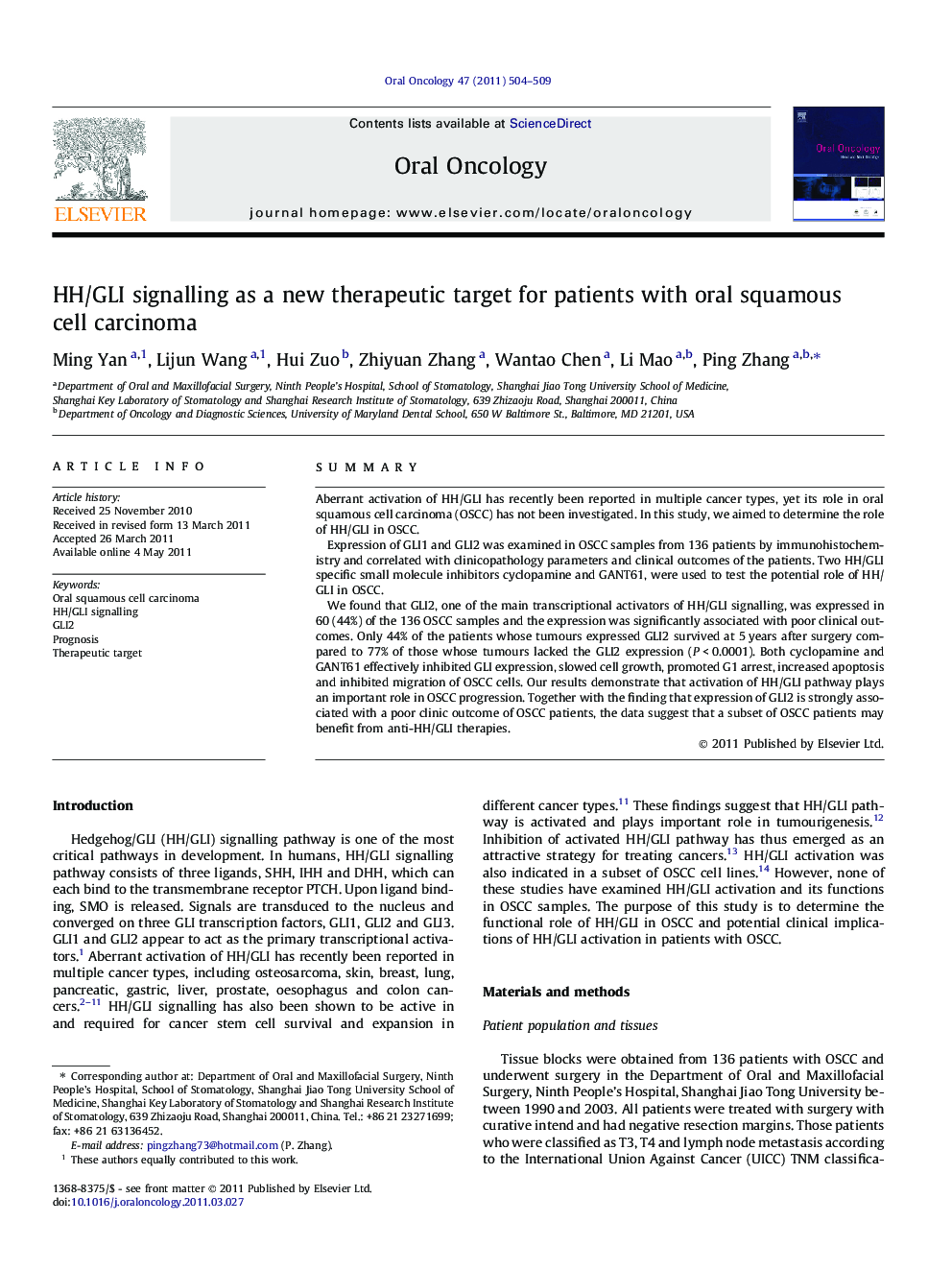| Article ID | Journal | Published Year | Pages | File Type |
|---|---|---|---|---|
| 3164700 | Oral Oncology | 2011 | 6 Pages |
Abstract
We found that GLI2, one of the main transcriptional activators of HH/GLI signalling, was expressed in 60 (44%) of the 136 OSCC samples and the expression was significantly associated with poor clinical outcomes. Only 44% of the patients whose tumours expressed GLI2 survived at 5Â years after surgery compared to 77% of those whose tumours lacked the GLI2 expression (PÂ <Â 0.0001). Both cyclopamine and GANT61 effectively inhibited GLI expression, slowed cell growth, promoted G1 arrest, increased apoptosis and inhibited migration of OSCC cells. Our results demonstrate that activation of HH/GLI pathway plays an important role in OSCC progression. Together with the finding that expression of GLI2 is strongly associated with a poor clinic outcome of OSCC patients, the data suggest that a subset of OSCC patients may benefit from anti-HH/GLI therapies.
Related Topics
Health Sciences
Medicine and Dentistry
Dentistry, Oral Surgery and Medicine
Authors
Ming Yan, Lijun Wang, Hui Zuo, Zhiyuan Zhang, Wantao Chen, Li Mao, Ping Zhang,
